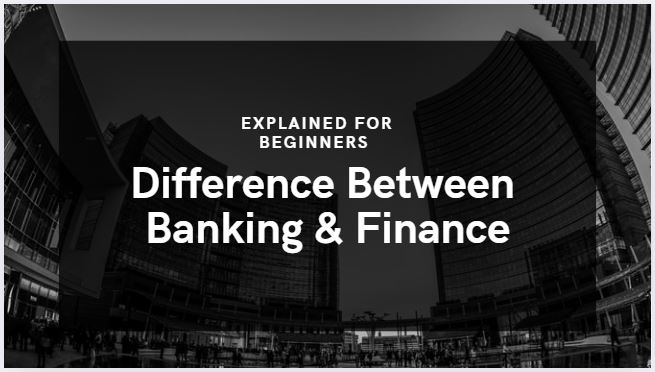
In the modern world of money, understanding banking and finance is essential for individuals and businesses alike. While these two terms are often used interchangeably, they represent distinct yet interconnected fields.
In this blog, we’ll break down the differences between banking and finance in simple terms and explore how a PGDM in Banking & Financial Services can help you excel in these dynamic industries.
What Is Banking?
Banking is a specialized sector that focuses on the safekeeping, lending, and management of money. Banks serve as intermediaries between individuals or organizations with surplus funds (depositors) and those who need funds (borrowers).
Key Functions of Banking:
- Accepting Deposits: Providing a safe place for customers to store their money.
- Providing Loans: Offering personal, corporate, and mortgage loans to customers.
- Facilitating Transactions: Managing financial transactions through savings accounts, credit cards, and payment systems.
- Wealth Management: Advising clients on investment strategies and financial planning.
What Is Finance?
Finance, on the other hand, is a broader term encompassing the management of money and investments. It involves analyzing, planning, and controlling financial resources for individuals, businesses, and governments.
Key Aspects of Finance:
- Personal Finance: Managing individual income, expenses, savings, and investments.
- Corporate Finance: Managing a company’s financial resources to maximize shareholder value.
- Public Finance: Government management of public revenues, expenditures, and debts.
- Investment Management: Advising on and managing investment portfolios for profit generation.
Core Differences Between Banking and Finance
Aspect | Banking | Finance |
Scope | Limited to deposit-taking and lending | Broader, includes investments, budgeting, and planning |
Focus | Day-to-day monetary operations | Long-term wealth generation and management |
Services Provided | Loans, savings, credit facilities | Investments, risk management, financial analysis |
Regulation | Heavily regulated by central banks | Less regulated, depending on the sector |
Why Choose a Career in Banking & Financial Services?
With the rapid growth of financial markets, digital banking, and fintech innovations, the demand for skilled professionals in banking and finance is on the rise. Pursuing a PGDM in Banking & Financial Services can open up exciting career opportunities in both fields.
Benefits of a PGDM in Banking & Financial Services:
- Specialized Knowledge: Learn industry-specific skills in areas like risk management, investment banking, and corporate finance.
- Career Opportunities: Roles in commercial banks, investment firms, and financial consultancies.
- Networking: Build a strong professional network with peers, faculty, and industry leaders.
- Industry Relevance: Stay updated on the latest trends in banking and finance through a top PGDM in Banking & Financial Services course.
Career Paths in Banking and Finance
Career Options in Banking:
- Relationship Manager
- Loan Officer
- Credit Analyst
- Branch Manager
Career Options in Finance:
- Financial Analyst
- Investment Banker
- Portfolio Manager
- Risk Consultant
A PGDM in Banking & Financial Services equips you with the expertise to excel in these roles, making you a valuable asset to any organization.
Why a PGDM in Banking & Financial Services Is the Best Choice
For aspiring professionals, enrolling in a top PGDM in Banking & Financial Services course offers the perfect combination of theoretical knowledge and practical exposure. Programs like these cover critical areas such as:
- Financial modeling
- Banking operations
- Investment management
- Digital finance
Whether you want to work in corporate finance or commercial banking, this program prepares you for real-world challenges.
Conclusion
While banking and finance are interconnected, they have distinct roles in the economy. Banking focuses on managing money through deposits and loans, while finance encompasses broader money management, including investments and risk analysis.
By pursuing a comprehensive PGDM in Banking & Financial Services, you can gain the expertise and skills needed to thrive in these fields. With the right education and dedication, the opportunities in the world of banking and finance are limitless!
